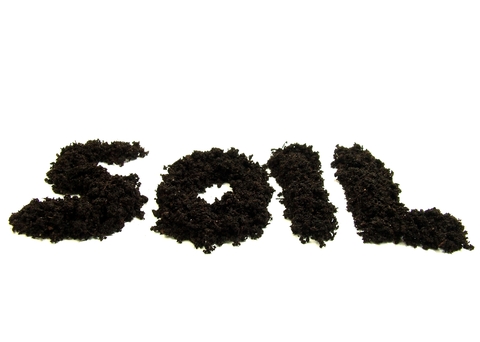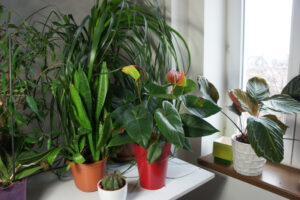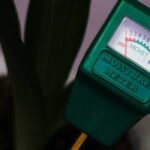Organic Potting Soil for Healthy Houseplants
I often get questions about the best potting soil to use for houseplants. In fact, I was recently asked to provide guidance to indoor gardeners on potting soil for Porch.com.
When asked about houseplant potting soil, my first answer is, whatever you do—pot up your houseplants with an organic soil. There are many reasons for this. One being that soils with organic ingredients sustain your houseplant soil and that sustains your houseplants.
Why to Avoid Non Organic Soil
Soils that aren’t organic often contain chemical fertilizers that your houseplants can come to rely on for fast growth. As I mention when I speak about growing a healthy indoor garden, you are Mother or Father Nature for your houseplants.
That being said—you want to act like a responsible parent and teach your plants to become self-sustaining. That’s impossible if you’re feeding their potting soil with chemical fertilizers—as the chemical fertilizers need to be replaced quite frequently or the plant will literally go into withdrawal.

What Organic Soil Contains
An organic soil contains organic ingredients, such as alfalfa meal, which contains natural growth hormones, worm compost and mycorrhizae, as well as oodles of beneficial bacteria. No worries about the latter—as these microscopic organisms can’t be seen by the naked eye—but their effects can be. Your plants will thrive when the soil is full of them!
When you use an organic potting soil and organic fertilizers, you create a self-sustaining environment in your houseplant soil. That means that the soil will do the hard work for you. If you forget to feed your houseplants, the soil continues to feed them. Some ingredients of organic potting soil, like mycorrhizae, even make your houseplants more drought resistant.
The Benefits of Mycorrhizae in Potting Soil

Mycorrhizae is a marvelous ingredient in potting soil. This is a microscopic fungus that you can’t see, but it does wonders for your plants. These fungi are found outdoors in nature. As a matter of fact, they’ve been around in soil since the beginning of time.
Mycorrhizal fungi are the reasons that plants thrive in nature. They attach themselves to plant roots. The plants allow the symbiotic relationship, because the mycorrhizae go out and find more nutrients and more water than the plants would on their own. And these little fungi make roots grow much larger and longer than they would without them.
Organic Soil has Natural Growth Hormones
Alfalfa meal, mentioned at the beginning of this article, and various sea kelp formulations contain natural growth hormones. Why are natural growth hormones important to houseplants? Because they are a good substitute for chemical growth hormones.
Chemical growth hormones are used by growers to make plants grow quickly and big. The trouble is that once the plants no longer get these hormones—much like steroids in humans—they can have life-threatening problems! Those problems can include atrophy and eventual death. Natural growth hormones in alfalfa meal and sea kelp mixes wean your plants
off the chemical plant steroids.
Feed Your Potting Soil Compost
Compost is another important ingredient in a good potting soil. It provides a wide variety of micronutrients, as well as lends pest and disease fighting abilities to plants. Compost also creates humus, a vital ingredient in healthy soil. Humus is what ensures that forests grows. You can also add humus in the form of humic acid.
Worm compost is one of my favorite forms of compost. This odorless amendment, also known as vermicompost and worm castings, offers your plants a variety of micronutrients. Studies have also found that vermicompost helps make plants resistant to pests and diseases.
Check out my video below.





